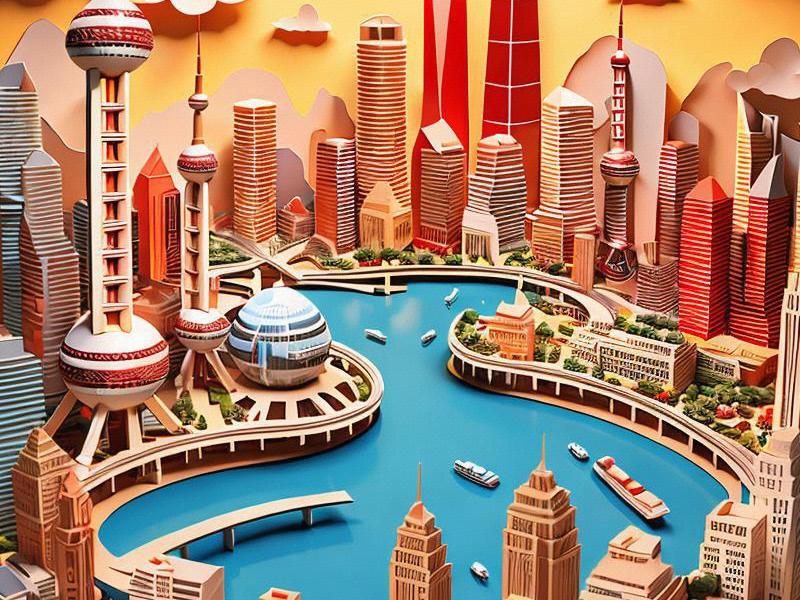
Shanghai's journey from a small fishing village to one of the world's most significant cities is nothing short of remarkable. In the 19th century, the city became a treaty port following the First Opium War, marking the beginning of its integration into the global economy. The Bund, with its colonial-era architecture, stands as a historical reminder of this era. However, Shanghai's true transformation began in the late 20th century, when it was designated as a Special Economic Zone. This pivotal decision catalyzed an unprecedented wave of economic growth and modernization.
Today, Shanghai is a global financial center, rivaling cities like New York and London. The Shanghai Stock Exchange is one of the largest in the world, and the city is home to numerous multinational corporations, banks, and financial institutions. The Pudong area, once a rural landscape, has been transformed into a symbol of China's economic prowess, featuring iconic landmarks such as the Oriental Pearl Tower, the Jin Mao Tower, and the Shanghai Tower, which is the tallest building in China and the second-tallest in the world.
Innovation is at the heart of Shanghai's success. The city has established itself as a leader in technology and research, with Zhangjiang Hi-Tech Park serving as a major hub for high-tech industries. Shanghai is home to numerous research institutions and universities, including Fudan University and Tongji University, which are renowned for their contributions to science, engineering, and medicine. The city's commitment to innovation is further evidenced by its initiatives in artificial intelligence, biotechnology, and green energy.
爱上海最新论坛 Culturally, Shanghai is a city of contrasts, where the old and the new coexist harmoniously. The French Concession, with its charming cobblestone streets and historic buildings, offers a glimpse into the city's colonial past. Meanwhile, the futuristic skyline of Lujiazui and the vibrant shopping districts of Nanjing Road and Huaihai Road showcase Shanghai's modern identity. The city is also a haven for art and culture, with institutions like the Shanghai Museum, which houses an impressive collection of Chinese art, and the Shanghai Grand Theatre, which hosts a wide range of performances.
Shanghai's culinary scene is another aspect that reflects its rich cultural tapestry. The city is known for its unique blend of traditional Shanghainese cuisine and international flavors. Dishes like xiaolongbao (soup dumplings) and shengjianbao (pan-fried dumplings) are must-tries for food enthusiasts. Additionally, Shanghai's night markets and bustling food streets offer a diverse array of culinary experiences, catering to both locals and tourists.
Urban development in Shanghai is a marvel of modern engineering and planning. The city has invested heavily in infrastructure, including its extensive metro system, which is one of the busiest in the world. The Maglev train, which connects Pudong International Airport to the city center, is a testament to Shanghai's commitment to efficient transportation. The city's green initiatives, such as the construction of urban forests and the promotion of sustainable practices, demonstrate its dedication to environmental sustainability.
上海龙凤419自荐 Shanghai's global influence extends beyond its economic and cultural achievements. The city has played a pivotal role in China's Belt and Road Initiative, fostering international trade and cooperation. As a host city for numerous international events, including the World Expo in 2010, Shanghai has become a platform for global dialogue and exchange. The city's cosmopolitan atmosphere attracts millions of visitors each year, drawn by its vibrant lifestyle, rich history, and promising future.
However, Shanghai's rapid development is not without challenges. The city faces issues related to urban sprawl, traffic congestion, and environmental concerns. To address these challenges, the municipal government has implemented various strategies, such as promoting public transportation, enhancing green spaces, and encouraging the use of renewable energy. These efforts aim to ensure that Shanghai remains a sustainable and livable city for its residents.
上海龙凤419杨浦 The people of Shanghai are the lifeblood of the city, contributing to its dynamic character and resilience. The city's diverse population, including a significant expatriate community, reflects its status as a global metropolis. Shanghainese culture, with its unique dialect, customs, and traditions, adds to the city's charm. The spirit of innovation and adaptability that defines the people of Shanghai is a key factor in the city's continued success.
In conclusion, Shanghai is a city that embodies the essence of China's transformation and its aspirations for the future. Its blend of historical significance, cultural richness, and modern innovation makes it a unique and captivating destination. As Shanghai continues to evolve, it remains a beacon of progress and a symbol of China's growing influence on the global stage.
The city's story is one of resilience, ambition, and a relentless pursuit of excellence. From its humble beginnings as a fishing village to its current status as a global powerhouse, Shanghai's journey is a testament to the potential of urban development and the human spirit. As we look to the future, Shanghai's dynamic energy and innovative spirit will undoubtedly shape the world in profound ways.
